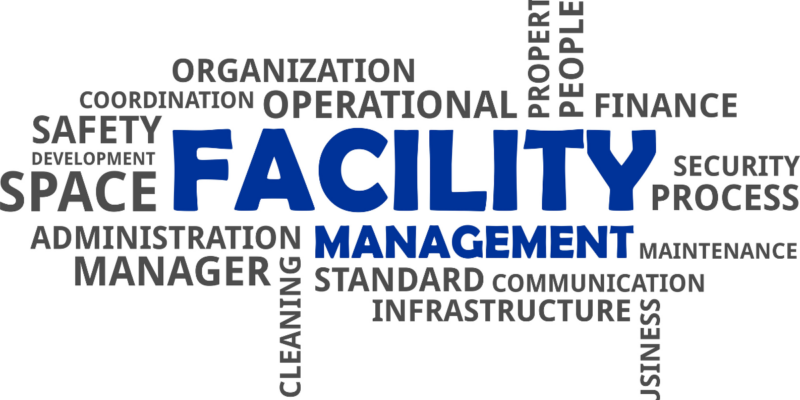
IFM in real estate means Integrated Facilities Management, which refers to the comprehensive management of multiple support services within a facility or a portfolio of properties by a single service provider – leading to optimised operations, reduced costs, and enhanced efficiency.
Table of Contents
Importance of Integrated Facilities Management in Real Estate
In this article, you can find a detailed breakdown of IFM in real estate, its importance, key components, benefits in real estate operations, and the process of implementing IFM in property management. Listed below are a few reasons why Facility Management is important:
-
Cost Efficiency:
By centralising services and leveraging economies of scale, IFM in real estate can help reduce costs through streamlined operations, efficient resource allocation, and better negotiation power with vendors.
-
Enhanced Productivity:
IFM allows organisations to focus on their core business activities while leaving facility management tasks to experts. This improves overall productivity by freeing up internal resources and allowing employees to focus on their primary responsibilities.
-
Improved Service Quality:
With specialised service providers managing different facility functions, consistent and high-quality service delivery can be ensured – leading to improved customer satisfaction.
-
Compliance and Risk Management:
Facility Management Services help organisations comply with regulatory requirements, health & safety standards, and other legal obligations; and also assists in identifying & mitigating risks related to their facilities.
-
Strategic Decision-making:
By providing comprehensive data and insights on facility performance, IFM enables informed decision-making for long-term planning, resource allocation, and investment strategies.
-
Flexibility and Scalability:
IFM in real estate can adapt to changing business needs, allowing organisations to scale up or down their facility management requirements based on demand, market conditions, or organisational growth.
-
Sustainability and Energy Efficiency:
It can contribute to sustainable practices by implementing energy-saving measures, adopting eco-friendly technologies, and promoting responsible resource management.
Integrated Facilities Management Cost
IFM full form is Integrated Facilities Management. Integrated Facilities Management Costs are typically calculated based on several factors, and are borne by the occupants or tenants of the property. The specific details and calculation methods may vary depending on the property and the terms of the lease or agreement. However, here’s a general overview of how facility management costs are commonly calculated:
-
Common Area Maintenance (CAM) Charges:
These are a significant component of IFM charges. They cover the expenses incurred for maintaining and operating the shared areas of the property, such as lobbies, corridors, elevators, parking lots, landscaping, security, and common utilities.
-
Utility Costs:
Integrated Facilities Management charges may include utilities such as water, electricity, gas, heating, ventilation, and air conditioning (HVAC) systems.
-
Maintenance and Repairs:
The charges may also cover maintenance and repair expenses for the property, including routine upkeep, cleaning, painting, and repairs of common facilities.
-
Management Fees:
The property management company responsible for overseeing the IFM services will charge a fee that covers its expenses & margins.
-
Other Services:
Additional services such as pest control, waste management, fire safety systems, landscaping, and specialised maintenance services may be included in the IFM charges.
It is important to note that the specific breakdown and calculation methods for these charges can vary depending on the property, lease terms, and local regulations.
Key Components of Integrated Facilities Management (IFM)
IFM meaning is Integrated Facilities Management. Following are the important components of the same:
-
Facility Operations and Maintenance:
This component focuses on managing the day-to-day operations and maintenance of a real estate facility
-
Security and Safety Management:
It involves the implementation and monitoring of security and safety measures within a facility.
-
Cleaning and Housekeeping:
This component is responsible for managing and tracking cleaning and housekeeping services in the facility
-
Landscape and Environment:
It focuses on the maintenance and enhancement of the outdoor spaces within the campus, surrounding the buildings
-
Technical Services:
This covers the management of technical infrastructure & systems, and includes tasks such as managing HVAC (heating, ventilation, and air conditioning) systems, electrical systems, plumbing, fire protection systems, and other technical installations.
Facility Management Services integrates these components to manage and optimise various aspects of facility operations. It improves efficiency, reduces costs, ensures compliance, and enhances the overall experience of occupants and visitors within the facility.
Benefits of Integrated Facilities Management (IFM) in Real Estate
Integrated Facilities Management (IFM) in real estate offer numerous benefits that contribute to the overall success and efficiency of property management. Some of the key advantages include:
-
Enhanced Property Functionality and Efficiency:
IFM focuses on optimising the functionality of various building systems and processes. By implementing integrated solutions, such as smart building technologies and automation systems, facilities can be managed more efficiently. This leads to improved operational performance, reduced downtime, and enhanced overall functionality of the property.
-
Cost Optimisation and Operational Savings:
It helps real estate owners and managers achieve cost optimisation by streamlining operations, consolidating service providers, and implementing efficient maintenance and energy management strategies. By centralising facility management functions, economies of scale can be achieved, resulting in reduced operational costs and increased savings.
-
Improved Tenant Satisfaction and Retention:
Well-managed facilities contribute to higher tenant satisfaction levels. IFM ensures that the building environment is comfortable, safe, and properly maintained, which enhances the overall tenant experience. This, in turn, increases tenant satisfaction and improves retention rates, leading to a more stable and profitable real estate investment.
-
Streamlined Maintenance and Asset Lifecycle Management:
Facility Management includes comprehensive maintenance programs that focus on preventive and predictive maintenance. Through data-driven approaches and advanced technologies, facility managers can optimise maintenance schedules, extend the lifespan of assets, and minimise unexpected breakdowns. This leads to reduced repair costs, improved asset performance, and increased operational efficiency.
-
Compliance with Regulations and Standards:
Real estate properties are subject to various regulations, codes, and standards related to safety, security, accessibility, and environmental sustainability. IFM services ensure that the property is compliant with all applicable regulations and standards, reducing the risk of penalties and legal issues. This proactive approach also enhances the reputation of the property and its management.
-
Risk Mitigation and Emergency Preparedness:
IFM prioritises risk assessment and emergency preparedness, with measures that identify and mitigate potential risks, such as fire hazards, security threats, and natural disasters. By having proper risk management protocols in place, property owners and managers can protect the well-being of occupants and assets, minimise damage, and ensure business continuity during unforeseen events.
Implementing IFM in Real Estate Developments
This involves creating a comprehensive framework that efficiently manages & maintains the facilities in a real estate project. This framework typically includes various functions such as property management, maintenance and repairs, security, cleaning services, energy management, and other related services.
Here’s a step-by-step guide to implementing integrated facility management services:
-
Determine the Scope:
Begin by identifying the scope of facility management services required for your real estate development project. Set clear objectives and goals for the same.
-
Develop a Comprehensive Facility Management Plan:
Create a detailed plan that outlines the strategies, processes, and procedures required to meet the objectives & goals defined earlier. Consider implementing computerised maintenance management systems (CMMS) for tracking maintenance activities, building automation systems (BAS) for efficient energy management, and facility management software for managing service requests & tracking performance metrics.
-
Vendor Selection and Contracts:
Identify & select vendors or service providers for different facility management functions. This could include security companies, cleaning services, landscaping, waste management, and more. Implement effective communication channels to facilitate seamless information flow between the facility management team, tenants, and other stakeholders.
-
Training & Education:
Train the facility management team to ensure they have the necessary skills and knowledge to perform their duties effectively. This may involve training on equipment operation, safety protocols, customer service, and relevant regulatory requirements.
By following these steps, you can successfully implement IFM in real estate development projects, leading to efficient operations, improved tenant satisfaction, and enhanced asset value.
Final Thoughts
In conclusion, Integrated Facilities Management plays a crucial role in the real estate industry. The comprehensive approach to managing & maintaining facilities ensures that all aspects of a property are efficiently & effectively taken care of, allowing businesses & organisations to focus on their core activities.
IFM encompasses a wide range of functions, including facility operations, maintenance, space planning, security, cleaning, and environmental management. By consolidating these services under a single provider, property owners can benefit from streamlined processes, cost savings, and improved service quality.
In today’s rapidly changing business landscape where agility & cost-effectiveness are paramount, Integrated Facility Management Services stand out as a strategic solution. They provide a comprehensive framework for managing the buildings / campuses, enabling businesses to maximise the value of their real estate assets while minimising operational complexities.
As the real estate industry continues to evolve, IFM services will remain at the forefront, driving efficiency, sustainability, and innovation. By entrusting the management of their facilities to specialised IFM providers, businesses can focus on their core competencies and confidently navigate the ever-changing demands of the modern world. Integrated Facilities Management is not just a service; it is a strategic partnership that unlocks the full potential of real estate and empowers organisations to thrive in today’s competitive landscape.
Also Read:









